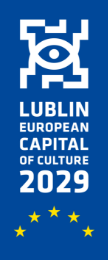Lublin is the Gate of the East, a city of a rich multicultural heritage. Here, in 1569, the Polish-Lithuanian Union, one of the first European unions, was formed. As a result of this, the Commonwealth was intended to be an equal state of Poles, Lithuanians, Ukrainians, and Belarusians. Obviously, the Jewish community, which lived here, must also be acknowledged for shaping its unique culture that evidently influences the city to this very day. All these factors contributed to the European Heritage Label Lublin was awarded with. This recognition is a symbol of the European concepts of integration, the heritage of democracy and tolerance, and the cultures’ dialogue between East and West.
We consider the European Capital of Culture a natural continuation of the European Youth Capital—the title that Lublin has been taking pride in since 2023. This program became a real talent incubator, providing young people with the opportunity to actively contribute to the city’s culture and engage socially. It is these people that will greatly form the European Capital of Culture in 2029. They will become its managers, curators, artists, and recipients.
A vast multitude of events attracting tourists and an immense promotion in Poland as well as worldwide await us. In addition, this title increasingly opens doors for receiving European funds we would allocate for the sake of the development of infrastructure, prosocial, and culture-forming activities.
Tłumaczenie: Zofia Świerszcz, 2 rok, grupa AN
Korekta: Daria Nowak

